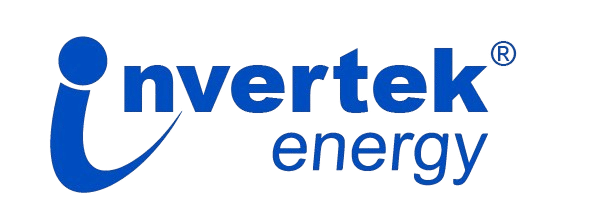In the world of renewable energy, the demand for efficient, reliable power storage is skyrocketing. Homeowners and renewable energy enthusiasts alike are seeking solutions that maximize energy use without compromising on sustainability. Enter the lithium battery for inverter—the game-changer in the energy storage landscape.
Choosing the right battery type is crucial for efficient power management, and lithium-ion batteries are increasingly emerging as the top choice for both home and solar inverter systems. This blog post will explore the world of lithium-ion batteries for inverters, their benefits, and the key factors to consider when choosing the right battery for your needs.
What is a Lithium Ion Battery for Inverters?
Lithium-ion batteries, known for their high energy density and long lifespan, are revolutionizing the way we store energy. Unlike traditional lead-acid batteries, lithium-ion batteries offer superior performance in terms of efficiency and maintenance. They charge faster, last longer, and are lighter, making them ideal for modern inverter systems.
The technology behind lithium-ion batteries involves the movement of lithium ions between the anode and cathode, which generates electricity. This process is highly efficient and results in minimal energy loss. While lead-acid batteries have been the norm for years, the shift towards lithium-ion technology is driven by the need for more sustainable and high-performing energy solutions.
In the context of inverters, lithium-ion batteries provide the stable power required to convert DC (direct current) to AC (alternating current), ensuring that your appliances and systems continue to run smoothly during power outages or when off-grid.
Advantages of Using Lithium Ion Battery for Home Inverters
When it comes to home inverters, the benefits of lithium-ion batteries are undeniable. Firstly, they have a significantly longer lifespan compared to their lead-acid counterparts. Typically, a lithium-ion battery can last up to ten years, meaning fewer replacements and long-term savings. Their high efficiency means more of the stored energy is actually used, reducing wastage and optimizing energy consumption.
Cost-effectiveness is another advantage. While the initial investment in a lithium-ion battery may be higher, the reduced replacement needs and lower maintenance costs make it more economical over time. Unlike lead-acid batteries, which require regular watering and maintenance checks, lithium-ion batteries are virtually maintenance-free, saving both time and resources.
Furthermore, when comparing lithium-ion batteries to other types commonly used in home inverters, such as nickel-cadmium or nickel-metal hydride, the former stands out for its superior energy efficiency and environmentally friendly nature. Lithium-ion batteries do not contain toxic metals, making them a safer and greener choice for homes committed to sustainability.
Lithium Ion Battery for Solar Inverters
For solar energy systems, lithium-ion batteries are an ideal companion. Their ability to store large amounts of energy efficiently and release it steadily makes them perfect for solar applications. In solar setups, these batteries collect and store energy generated during sunny periods, which can then be used when the sun isn’t shining or during cloudy days.
Lithium-ion batteries enhance the performance and sustainability of solar-powered systems by offering better charge retention and more cycles over their lifetime. This means homeowners can achieve greater energy independence, reducing reliance on the grid and contributing to a greener planet.
Solar inverters equipped with lithium-ion batteries are more efficient in energy conversion processes, which translates to reduced energy bills and a smaller carbon footprint. This efficiency also means that your solar investment pays off faster, as more of the generated energy is retained and utilized.
Understanding Lithium Ion Battery for Inverter 200Ah
When considering a lithium-ion battery for your inverter, understanding capacity is crucial. A 200Ah lithium-ion battery is a popular choice, offering a substantial amount of stored energy. But what does 200Ah mean for users? It refers to the battery’s ability to deliver 200 amperes of current for one hour before it’s depleted.
The 200Ah capacity is advantageous for households with higher energy demands, as it provides longer run times for your appliances and systems. Whether it’s powering a home entertainment system, essential appliances, or even critical medical devices, a 200Ah battery ensures reliability and peace of mind.
Selecting the right capacity for your home and solar inverters involves assessing your energy consumption needs. If you possess high power requirements or anticipate future increases in usage, opting for a 200Ah lithium-ion battery can provide the necessary support and flexibility.
Key Factors to Consider When Choosing a Lithium Battery for Inverter
Choosing the right lithium battery for your inverter involves several considerations. Battery life is paramount; ensure the battery offers a long lifespan and is backed by a solid warranty to protect your investment. Charging time is another factor; lithium-ion batteries typically charge faster than other types, which is crucial for maintaining power availability.
Safety features cannot be overlooked. Look for batteries with built-in protection mechanisms against overcharging, overheating, and short circuits. These features not only enhance safety but also prolong the life of the battery.
Importantly, match the battery specifications with your inverter requirements. Ensure the battery’s capacity and voltage are compatible with your inverter to prevent performance issues. Tailor your choice to your individual energy needs, considering factors such as the size of your home, the number of appliances, and your typical energy consumption patterns.
The Future is Bright with Lithium-Ion Batteries
Lithium-ion batteries are paving the way for a more efficient and sustainable energy future. Their numerous advantages, including long lifespan, high efficiency, and environmental friendliness, make them a superior choice for both home and solar inverters. By selecting the right lithium-ion battery, homeowners can maximize energy savings, enhance their energy independence, and contribute to a greener planet.
When choosing a lithium-ion battery for your inverter, consider factors such as capacity, safety features, and compatibility with your inverter system. With the right battery, you can future-proof your home and ensure reliable power for years to come.
If you’re considering making the switch to lithium-ion, now is the time. Explore the options available and find the perfect fit for your home or solar inverter system. The shift to lithium-ion technology is not just a trend—it’s a smart investment in a sustainable, efficient, and reliable energy future.


